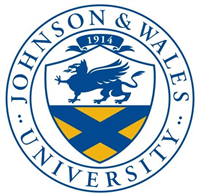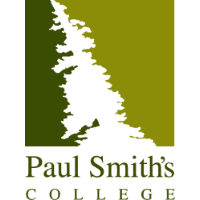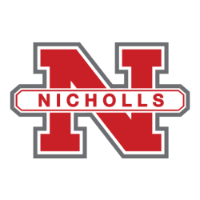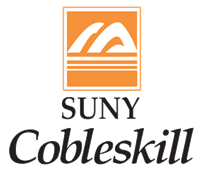What do they do?
Direct and may participate in the preparation, seasoning, and cooking of salads, soups, fish, meats, vegetables, desserts, or other foods. May plan and price menu items, order supplies, and keep records and accounts.
Also known as:
Banquet Chef, Certified Executive Chef (CEC), Chef, Cook, Corporate Executive Chef, Executive Chef (Ex Chef), Executive Pastry Chef, Executive Sous Chef, Head Cook, Kitchen Manager, Pastry Chef, Sous Chef
-
15.8%
Change
Ranks #52 in job growth rate400Job Openings
Ranks #19 in net job growth
-
Johnson & Wales University-Providence
Providence, RI
-
Walnut Hill College
Philadelphia, PA
-
Culinary Institute of America
Hyde Park, NY
-
Universidad Ana G- Mendez-Carolina Campus
Carolina, PR
-
Nicholls State University
Thibodaux, LA
Looking for colleges that offer a specific major? Use the College Match Tool to find your best-matched schools and discover your estimated Net Price!
- Doctorate or Professional Degree (<1%)
- Master's degree (2%)
- Bachelor's degree (13%)
- Associate's degree (17%)
- Some college, no degree (20%)
- High school diploma equivalent (30%)
- Less than high school diploma (17%)
Most Popular Majors that prepare Chefs and Head Cooks
-
#1
-
Degrees Granted
194
-
Female Students
99
-
Male Students
95
-
Median Starting Salary
$33,600
-
-
#2
-
Degrees Granted
102
-
Female Students
55
-
Male Students
47
-
Median Starting Salary
$33,600
-
-
#3
-
Degrees Granted
94
-
Female Students
85
-
Male Students
9
-
Median Starting Salary
$33,600
-
-
#4
-
Degrees Granted
88
-
Female Students
46
-
Male Students
42
-
Median Starting Salary
$33,600
-
People in this career often have these skills:
- Coordination - Adjusting actions in relation to others' actions.
- Speaking - Talking to others to convey information effectively.
- Monitoring - Monitoring/Assessing performance of yourself, other individuals, or organizations to make improvements or take corrective action.
- Time Management - Managing one's own time and the time of others.
- Active Listening - Giving full attention to what other people are saying, taking time to understand the points being made, asking questions as appropriate, and not interrupting at inappropriate times.
- Critical Thinking - Using logic and reasoning to identify the strengths and weaknesses of alternative solutions, conclusions, or approaches to problems.
- Social Perceptiveness - Being aware of others' reactions and understanding why they react as they do.
- Judgment and Decision Making - Considering the relative costs and benefits of potential actions to choose the most appropriate one.
- Management of Personnel Resources - Motivating, developing, and directing people as they work, identifying the best people for the job.
- Service Orientation - Actively looking for ways to help people.
People in this career often know a lot about:
- Food Production - Knowledge of techniques and equipment for planting, growing, and harvesting food products (both plant and animal) for consumption, including storage/handling techniques.
- Customer and Personal Service - Knowledge of principles and processes for providing customer and personal services. This includes customer needs assessment, meeting quality standards for services, and evaluation of customer satisfaction.
- Production and Processing - Knowledge of raw materials, production processes, quality control, costs, and other techniques for maximizing the effective manufacture and distribution of goods.
- Administration and Management - Knowledge of business and management principles involved in strategic planning, resource allocation, human resources modeling, leadership technique, production methods, and coordination of people and resources.
- Personnel and Human Resources - Knowledge of principles and procedures for personnel recruitment, selection, training, compensation and benefits, labor relations and negotiation, and personnel information systems.
- Mathematics - Knowledge of arithmetic, algebra, geometry, calculus, statistics, and their applications.
- Education and Training - Knowledge of principles and methods for curriculum and training design, teaching and instruction for individuals and groups, and the measurement of training effects.
- English Language - Knowledge of the structure and content of the English language including the meaning and spelling of words, rules of composition, and grammar.
- Public Safety and Security - Knowledge of relevant equipment, policies, procedures, and strategies to promote effective local, state, or national security operations for the protection of people, data, property, and institutions.
- Economics and Accounting - Knowledge of economic and accounting principles and practices, the financial markets, banking, and the analysis and reporting of financial data.
- Sales and Marketing - Knowledge of principles and methods for showing, promoting, and selling products or services. This includes marketing strategy and tactics, product demonstration, sales techniques, and sales control systems.
People in this career often have talent in:
- Oral Comprehension - The ability to listen to and understand information and ideas presented through spoken words and sentences.
- Oral Expression - The ability to communicate information and ideas in speaking so others will understand.
- Problem Sensitivity - The ability to tell when something is wrong or is likely to go wrong. It does not involve solving the problem, only recognizing that there is a problem.
- Deductive Reasoning - The ability to apply general rules to specific problems to produce answers that make sense.
- Speech Clarity - The ability to speak clearly so others can understand you.
- Speech Recognition - The ability to identify and understand the speech of another person.
- Information Ordering - The ability to arrange things or actions in a certain order or pattern according to a specific rule or set of rules (e.g., patterns of numbers, letters, words, pictures, mathematical operations).
- Inductive Reasoning - The ability to combine pieces of information to form general rules or conclusions (includes finding a relationship among seemingly unrelated events).
- Originality - The ability to come up with unusual or clever ideas about a given topic or situation, or to develop creative ways to solve a problem.
- Near Vision - The ability to see details at close range (within a few feet of the observer).
People in this career often do these activities:
- Monitor activities of individuals to ensure safety or compliance with rules.
- Check quality of foods or supplies.
- Coordinate timing of food production activities.
- Coordinate activities of food service staff.
- Create new recipes or food presentations.
- Determine prices for menu items.
- Train food preparation or food service personnel.
- Cook foods.
- Perform human resources activities.
- Order materials, supplies, or equipment.
- Manage food service operations or parts of operations.
- Inspect facilities, equipment or supplies to ensure conformance to standards.
- Estimate supplies, ingredients, or staff requirements for food preparation activities.
- Record operational or production data.
- Schedule equipment maintenance.
- Plan menu options.
- Plan special events.
- Communicate with customers to resolve complaints or ensure satisfaction.
This page includes data from:

 Occupation statistics: USDOL U.S. Bureau of Labor Statistics Occupational Employment Statistics
Occupation statistics: USDOL U.S. Bureau of Labor Statistics Occupational Employment Statistics









